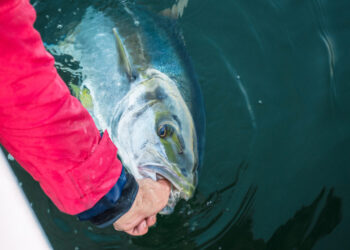
Image: David Menzel
ACCORDING to a report published by the ABC, scientists are concerned of potentially dire impacts on our waterways from the bushfire crisis.
They say the aftermath of the current fires could bring devastation to freshwater animals and plants.
This is because rain inevitably washes the ash and eroded soil from burnt forests into rivers and streams, shifting the bushfire impact to freshwater ecosystems.
Waterways can also suffer immediately in a fire just from the temperature increase, according to Ross Thompson from the University of Canberra.
“In one of the streams we worked on in Victoria, the Black Saturday fire got so hot that the stream boiled,” Professor Thompson told the ABC.
But it’s the longer term effects that have scientists really worried.
“There will be an increase in nutrients because there’s lots of phosphorous and nitrogen in ash,” said Professor Thompson, a freshwater ecologist who has studied water catchments after the 2003 fires in the ACT and the 2009 Black Saturday fires in Victoria.
“You also see more sediment because trees are falling down and the river banks are getting knocked around.”
As the water fills up with fine sediment and debris, the water quality can drop very quickly — and stay that way for a long time.
“We’re still seeing higher sediment loads coming out of the Cotter River catchment and those fires were more than a decade ago,” Professor Thompson said.
As soon as a fire has passed and the ash settles on rivers and lakes, bacteria in the water will start consuming the carbon in that ash.
In the process of breaking down the carbon, the bacteria will also consume the dissolved oxygen in the water. The more carbon, the more oxygen will be taken out of the system.
And most animals and plants can’t survive in such a low-oxygen environment.
“The the risk is we will see big fish kill events even in some of the larger rivers,” Professor Thompson said.
“Even if the fires didn’t burn immediately adjacent to the river.”

Changes in the turbidity, or amount of sediment in the water, is another factor that can threaten aquatic species.
“We see a loss of a lot of invertebrates that rely on really stony streams, because the sediment and ash smothers the rocks and it changes the habitat.”
Brown trout and rainbow trout also don’t like fine sediment, Professor Thompson said.
“Our experience … is that we lose trout populations, which is obviously a concern to recreational fishers and there’s economic consequences,” he said.
“The native fish tend to be a bit more robust. But we do have some quite rare species that won’t cope with fire.
“River blackfish are in a reasonable amount of conservation trouble and they really need vegetated streams, so the loss of habitat is significant.”
Source: ABC news

















